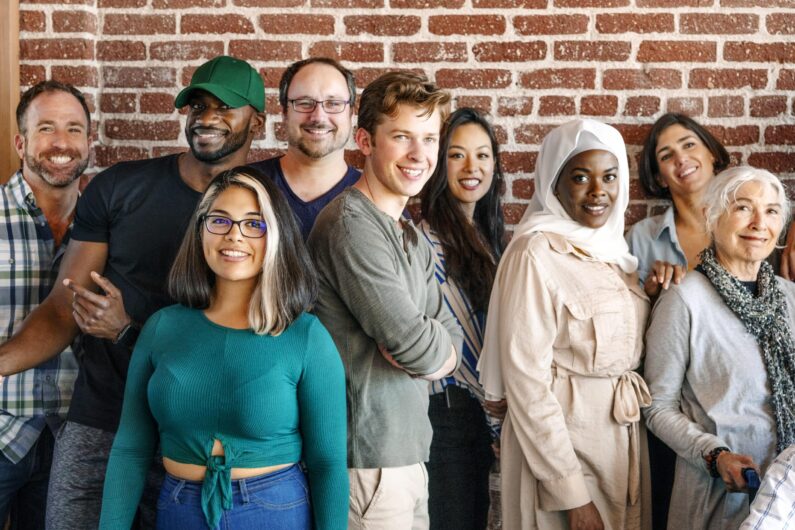Cultural translation, in the linguistic field, involves adapting cultural references from a source text to ensure they resonate appropriately across different cultures in the target language. This process, while rooted in linguistic studies, often encounters challenges not just from the language barrier but also due to extralinguistic factors—elements beyond mere words.
Achieving high-quality cultural translation demands careful consideration and research to ensure factual statements, vocabulary, humour, and other cultural nuances press the same impact on readers new to the term, regardless of their cultural background.
The practice of cultural translation spans various domains, from literary to audiovisual works, highlighting its significance in conveying nuanced content which aligns with the cultural expectations of diverse audiences. It holds a particularly crucial role in the business sector, where a misstep in cultural appropriateness can lead to misunderstandings or even jeopardize client relationships.
Consequently, professionals in this field must navigate these challenges with a deep understanding of both the source and target cultures, ensuring seamless communication across linguistic and cultural barriers.
Why should you translate cultural meaning?
Culture is what separates us from other species.
Culture delineates the unique tapestry which differentiates humans from other species, embodying a rich mosaic of idiosyncrasies and peculiarities that have historically fostered communal harmony.
This raises a critical question: how have diverse cultures, often at odds in understanding and values, managed to bridge their gaps? Regrettably, history is replete with instances where misunderstandings have escalated to tragic outcomes, underscoring the importance of overcoming these barriers.
In the realm of postcolonial studies and anthropology, the discipline of cultural translation emerges as a pivotal means to navigate and reconcile these differences. It’s an area which has shown, especially in locations like London and in nations undergoing rapid transformation today, how vital the nuanced study of culture is.
The sense of community, so much at the heart of human interaction, can be both a unifying force and a source of division, highlighting the need for a translational approach that respects the relativity of cultural contexts.
At BeTranslated, we strive to dismantle these barriers of fear and uncertainty, endeavouring instead to forge connections of tolerance and understanding. Our mission transcends mere translation; it’s about conveying the essence of a culture—its emotions, values, and experiences—to foster mutual respect and curiosity.
This task holds particular significance in the translational discipline, where the nuances of cultural relativity must be navigated for the care to preserve the integrity of the message across cultures.
Adapting cultural nuances for a target audience is not just critical; it’s a nuanced art which requires a deep understanding of both the source and destination contexts.
Consider the subtleties of humour in a comedy film or the specific jargon of a business document—without proper cultural translation, these elements lose their meaning and relevance from one to another.
This analysis underscores the early recognition of translation’s importance in ensuring that every translated text, whether in publishing, academic studies, or business communication, maintains its intended impact and significance.
Cultural translation, therefore, is not merely about linguistic fidelity but about ensuring that the message resonates among a new audience in a way that is both meaningful and relevant. In an era where non-localised content can often miss its mark, rendering it ineffective and even disregarded, the role of professional translation agencies becomes paramount.
By entrusting your content to agencies like BeTranslated, you are guaranteed a translation that not only respects the primary essence but also will enhance its accessibility and appreciation within its new community, furthering the understanding and connection between diverse cultures.
What factors affect cultural translation?
We could summarise the elements that we have to take into account when it comes to cultural translation into two categories,
In the introduction to the cultural translation, it’s essential to first abstract the core elements into two main categories: customs and traditions. The influence of history on contemporary societies plays a pivotal role, guiding translators in creating translations that resonate authentically within foreign areas.
This action requires an in-depth view of the target culture and language, even for native speakers, as overlooking minute details can compromise the translation’s integrity.
This text serves as a guide, emphasizing only through thorough reading and understanding of both the source and target cultures can one navigate the complex world of cultural translation.
Literature from across the globe also provides invaluable insights that may influence how translators approach their work, ensuring the essence of the initial text is preserved while having it accessible to a new audience.
Grasping the historical context of societies is paramount in understanding their distinct cultures, even when they share the same language. This divergence primarily stems from their unique historical backgrounds and the evolution of their communities over many years.
A prime case illustrating the influence of social context is the necessity for different translations for Spanish-speaking audiences in Spain versus those in Latin America. Despite speaking the same language, the cultural nuances are so significant that each requires a tailored approach to translation.
At BeTranslated, we recognize the complexities these scenarios present and, therefore, employ specialized native-speaking translators to cater to the nuanced needs of Spanish and Latin American audiences.
Furthermore, our collaboration extends to expert translators who guide the localisation process for other languages, such as French, ensuring we meet the specific requirements of both French and Belgian communities.
This dedication highlights our commitment to providing translations which respect and reflect the rich tapestry of world cultures, ensuring accuracy and relevance in every case.
Cultural translation in Spain
Spain, with its rich tapestry of culture, history, and natural beauty, stands as a beacon for tourists, particularly from Europe, drawing millions with its warm hospitality, stunning cities, and affordable travel options. In 2019, it secured its position as the second most visited country in Europe, a testament to its allure.
Nestled among other culturally vibrant European nations, Spain’s historical legacy is vast and varied, encompassing ancient cave drawings in the Cave of Altamira, architectural marvels like the Alhambra Palace, world-renowned museums such as Madrid’s Prado Museum, and deeply rooted traditions evident in celebrations like Semana Santa. These attractions represent just a fraction of what Spain offers to its visitors.
Economic contributions from tourism have been significant, with the National Institute of Statistics reporting a staggering €9.2 billion in tourist expenditure in September 2022 alone, marking an 83% increase from the previous year and nearing pre-pandemic levels.
This resurgence underscores the critical role of cultural translation in making Spain’s rich heritage accessible to a global audience, thereby enhancing the visitor experience and fostering deeper connections with the country’s cultural offerings.
The concept of cultural translation in Spain extends beyond mere language translation; it encompasses an understanding of the nuanced relativity between cultures.
This task becomes particularly pertinent when considering the diverse linguistic backgrounds of tourists. Insights to the predominant languages spoken by visitors, with French tourists leading the pack, highlight the necessity of translating content into French to cater to a significant segment of Spain’s tourist population.
However, the importance of accommodating other major groups—Germans, Brits, Dutch, Italians, and Belgians—through tailored translations cannot be overstated, as these efforts contribute to a more inclusive and enriching cultural experience for all.
Delving further in the theory of cultural translation reveals its intricate relationship with concepts such as colonialism and post-colonial theory. Spain’s colonial past and its interactions with various countries over time have shaped a complex cultural identity that is both unique and multifaceted.
The term “cultural translation” in this context not only refers to the linguistic translation but also to the attempt to bridge cultural gaps, allowing visitors to truly grasp the essence of Spain’s identity.
This endeavour requires a deep understanding of both the source and target cultures, ensuring that translations go beyond the basic conveyance of information to encapsulate the spirit of the original content.
In essence, cultural translation in Spain is a multifaceted endeavour that demands a comprehensive approach, incorporating the theory of relativity in understanding cultural nuances and making concerted attempts to provide translations that resonate with visitors from various backgrounds.
As Spain continues to welcome tourists from across the globe, the role of cultural translation in promoting a deeper appreciation of the country’s heritage becomes ever more crucial, further emphasizing the need for skilled translators who can navigate the complexities of this dynamic intercultural exchange.
Translations for museums and other exhibitions
In the realm of cultural translation, translation for museums stands out as a particularly nuanced area, emphasizing the importance of sensitivity and precision. Spain is home to a wealth of prestigious museums, each a testament to the country’s rich cultural heritage.
Among these, notable institutions include the esteemed Prado Museum in Madrid, the avant-garde Guggenheim in Bilbao, the cutting-edge Barcelona Museum of Contemporary Art (MACBA), the innovative Valencian Institute of Modern Art (IVAM), and the eclectic Centre Pompidou in Malaga.
These museums are not just spaces for the display of art; they are centres of education, creation, and cultural dialogue.
Within these cultural bastions, a multitude of management tasks unfold. These range from customer service and guided tours to the presentation of collections, the orchestration of temporary exhibitions, the hosting of debates or conferences, and the creation of promotional content.
Moreover, these institutions engage with the public through a plethora of communication channels, including the ever-expansive realm of social media. It is clear, then, that these activities necessitate a multilingual approach to cater to the diverse international audience that visits Spain, eager to delve into the nuances of Spanish culture.
Indeed, understanding and translating the multifaceted layers of museum content is a task that demands not just linguistic skill but a deep appreciation for the context, history, and cultural significance of the artefacts and artworks on display.
This is where BeTranslated steps in, offering its expertise. Our team of specialized native-speaking translators is adept at navigating the complex interplay between languages, ensuring that every piece of information, every exhibit description, and every promotional material is accurately and sensitively translated. This process, in turn, enriches the visitor experience, allowing guests from all corners of the globe to truly engage with and understand the essence of Spanish culture.
By leveraging our translation services, museums can bridge the linguistic divide, facilitating a more inclusive and educative environment. Whether it’s translating a scholarly article on one of Velázquez’s masterpieces, explaining the significance of a contemporary installation, or conveying the historical context of a modern art movement, BeTranslated is committed to ensuring that the message is not only conveyed but also resonates with the audience.
In doing so, we contribute to the global appreciation of Spain’s cultural treasures, one translation at a time, during a period when the sharing and understanding of culture have never been more vital.
We can translate any type of document or file
At BeTranslated, we pride ourselves on navigating through any challenges coming our way with unmatched expertise and determination. Our team consists of native-speaking professional translators, each with a deep-seated passion for communication and culture.
This passion fuels their ability to meticulously adapt to the diverse needs of businesses, institutions, organizations, NGOs, and local authorities across various economic sectors.
Our main focus is not only on ensuring linguistic accuracy but also on capturing the essence of the native text to make it resonate within different cultures.
Our services extend far beyond mere text translation; we specialize in transforming your PDF documents into your preferred target language, tailoring the content to engage your specific audience effectively.
Whether it’s adapting the subtleties of humour, the complexities of historical context, or the nuances of cultural references, our linguists are adept at making your message accessible and relevant to any reader, regardless of the linguistic or cultural background.
You can rely on our highly specialized team to handle a wide array of documents with precision and care. From historical texts requiring an understanding of the past’s influence on the present, to art, cinema, music, and sculpture documents that demand an appreciation for creative expression across different cultures, we offer translations from English to Spanish among many other language pairs.
Our expertise also spans the literary world, ensuring translations of foreign literature maintain the original’s integrity and spirit, making it possible for new audiences to experience the work as intended.
At BeTranslated, we don’t just translate words; we facilitate global communication and cultural exchange, making the world a more connected and understandable place.
Our commitment to excellence, coupled with our understanding of the intricacies of language and culture, positions us as a leader in the field of translation and localization. Trust us to be your partner in bridging language barriers and bringing your content to life across the world.
The challenging nature of cultural translation
Delving into the realm of cultural translation reveals it as a multifaceted process that demands more than just linguistic fluency; it requires an impeccable understanding of the history and culture of the target audience.
This intricate task is rooted in the studies of linguistics, society, and politics, forming a complex intersection that challenges even the most skilled translators.
The kind of nuanced knowledge necessary for effective cultural translation often comes from dedicated studies at the university level, combined with a deeply personal engagement with both the source and target cultures.
At BeTranslated, we recognize the inherent complexities of this task, which is why we have assembled an expert team of specialized native-speaking translators.
Our professionals are not only adept in their linguistic capabilities but are also deeply versed in the cultural and societal nuances that influence translation. This expertise ensures that your content is not merely translated but localized in a manner that avoids misunderstandings, thereby preserving the integrity and intended impact of the original text.
Our approach to cultural translation is grounded in the latest theories and studies from the fields of linguistics and cultural studies. We consider it part of our mission to stay abreast of new developments and insights that can enhance our translation practices.
Whether it’s a book, a dictionary, or any other form of text, we strive to ensure that the translation accurately reflects the original’s context, style, and subtleties.
Indeed, understanding the cost associated with professional cultural translation services can be a problem for many seeking to localize their content for new markets. Recognizing this, BeTranslated offers transparent, no-obligation quotes to demystify the pricing and process involved.
If you find yourself in need of professional cultural translation services and are uncertain about the investment required, we encourage you to reach out to us.
By doing so, you’ll gain insight into our competitive pricing and the value we can bring to your translation projects, ensuring your message resonates with your target audience while remaining faithful to its original intent.





